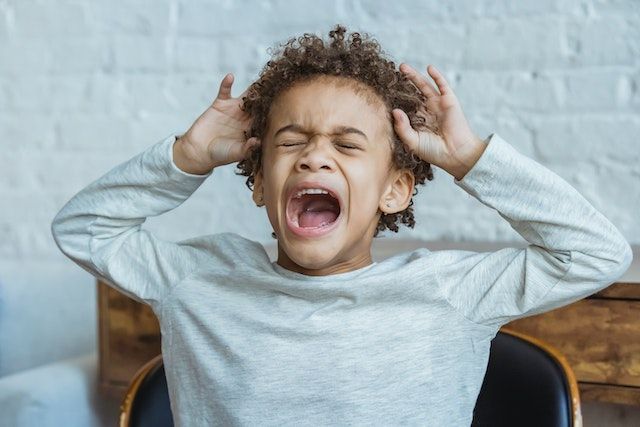I learned quite early in life to adopt politeness and polished mannerism in my day-to-day life. This has been part of my lifestyle for as long as I can remember and it's something I've come to appreciate about the foundational behavioural training I got during my younger years.
The thing about polished manners is that it's not complicated. It's as simple as;
- Know when to say "Please"
- Know when to say "Sorry"
- Know when to say "Thank You"
Of course, if you know when to say all these, you also have to say it and try as much as possible to be genuine about it.
These micro behaviors can be very useful in helping us grow as a person and it makes it easier for our interpersonal relationships with others to be on a good track. Besides, you will often notice that nobody enjoys being around ill-mannered people, whether kids or adults... Except those that are just as ill-mannered as they are.

Being good-mannered can attract people who are equally good-mannered to you and when you find yourself amid ill-mannered people, you will have the confidence to demand better behaviour from them.
This is partly why having polished manners is important and I think it's mainly the job of parents and anyone that has a duty of care towards kid(s) to help the kid(s) develop well-polished manners. The question parents ask about this is something like this;
When is the right time to start training our child?
Experts have their say on this and most of the data pulled from vetted sources suggests that parents can start correcting the mischiefs of their child from when they are 8-12 months. But, this is not always the case, especially for parents that are new to parenting. Some of them tend to see their child's mischiefs as 'too little to cause damage' so they ignore every moment the kid displays such tendencies.
They watch their kids disrespect them and they laugh it off. They watch their kids steal snacks from other kids in amusement parks and they smile back at their kid. As far as some of these parents are concerned, even their 7 years old is "still a kid" and will learn good behaviour when he or she becomes old enough.
Well, that's a really bad road to go down as a parent or anyone that has a duty of care towards kids. You are not helping them by ignoring their bad manners. The best thing you can do for them is to always observe them. When they display bad manners, point it out and give them corrections. And when you see improvement in their manner, make sure you highlight that too and laud their effort.
Spanish Version
Aprendí bastante temprano en la vida a adoptar la cortesía y el manierismo pulido en mi vida cotidiana. Esto ha sido parte de mi estilo de vida desde que tengo memoria y es algo que he llegado a apreciar sobre el entrenamiento conductual fundamental que recibí durante mis años de juventud.
Lo que pasa con los buenos modales es que no es complicado. Es tan simple como;
- Saber cuándo decir "Por favor"
- Saber cuándo decir "Lo siento"
- Saber cuándo decir "Gracias"
Por supuesto, si sabe cuándo decir todo esto, también tiene que decirlo y tratar de ser genuino al respecto en la medida de lo posible.
Estos micro comportamientos pueden ser muy útiles para ayudarnos a crecer como personas y facilita que nuestras relaciones interpersonales con los demás vayan por buen camino. Además, a menudo notarás que a nadie le gusta estar rodeado de gente mal educada, ya sean niños o adultos... Excepto aquellos que son tan maleducados como ellos.

Ser educado puede atraer a personas que son igualmente educadas hacia ti y cuando te encuentres entre personas mal educadas, tendrás la confianza para exigirles un mejor comportamiento.
Esta es en parte la razón por la que es importante tener buenos modales y creo que es principalmente el trabajo de los padres y cualquier persona que tenga el deber de cuidar a los niños para ayudarlos a desarrollar buenos modales. La pregunta que hacen los padres sobre esto es algo así;
¿Cuándo es el momento adecuado para empezar a educar a nuestro hijo?
Los expertos tienen su opinión al respecto y la mayoría de los datos extraídos de fuentes examinadas sugieren que los padres pueden comenzar a corregir las travesuras de sus hijos desde que tienen entre 8 y 12 meses. Pero, este no es siempre el caso, especialmente para los padres que son nuevos en la crianza de los hijos. Algunos de ellos tienden a ver las travesuras de sus hijos como "demasiado pequeñas para causar daño", por lo que ignoran cada momento en que el niño muestra tales tendencias.
Ven a sus hijos faltarle el respeto y se ríen. Ven a sus hijos robar bocadillos de otros niños en los parques de diversiones y les devuelven la sonrisa. En lo que respecta a algunos de estos padres, incluso su hijo de 7 años es "todavía un niño" y aprenderá a comportarse bien cuando tenga la edad suficiente.
Bueno, ese es un muy mal camino para seguir como padre o cualquier persona que tenga el deber de cuidar a los niños. No los estás ayudando ignorando sus malos modales. Lo mejor que puedes hacer por ellos es observarlos siempre. Cuando muestren malos modales, indícalo y dale correcciones. Y cuando vea una mejora en su comportamiento, asegúrese de resaltar eso también y elogie su esfuerzo.
Thanks For Not Missing Any Full-stop Or Comma
Thumbnail Image is taken from Pixabay